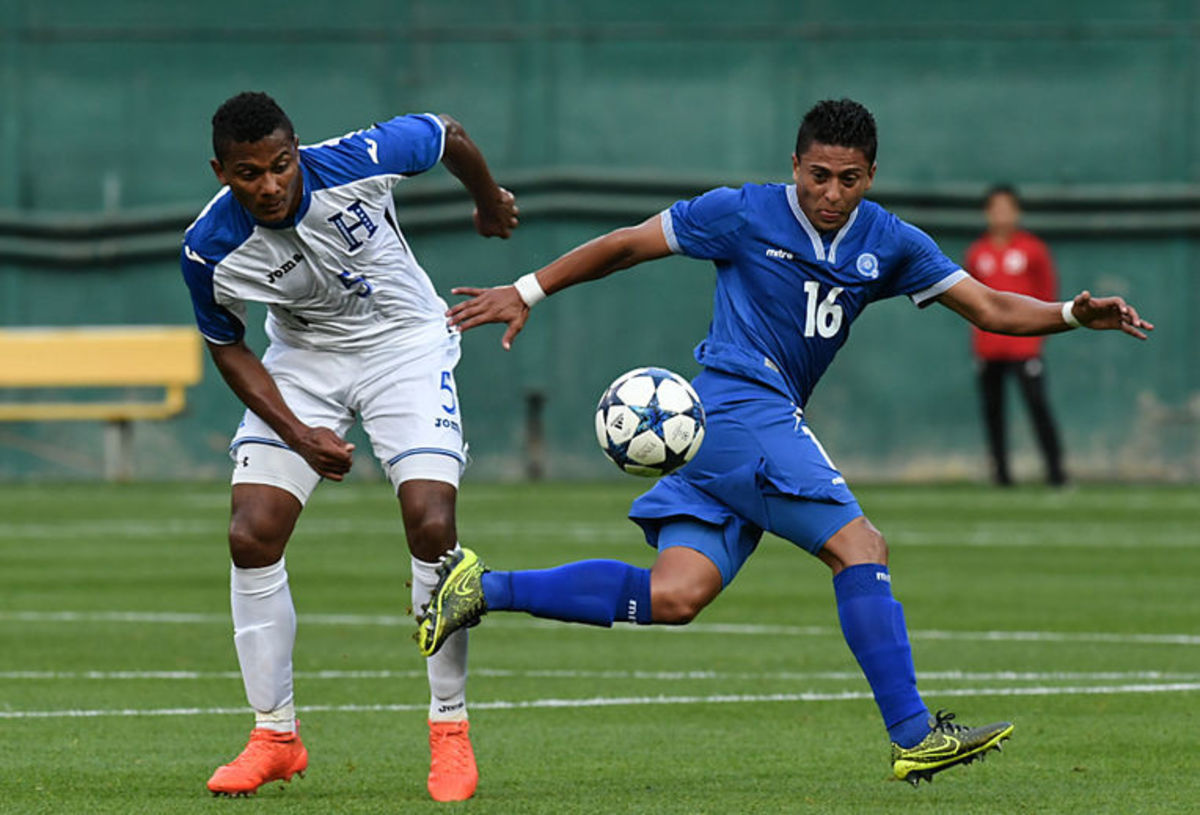World Cup Countdown: 12 Weeks to Go - How a Match Between Honduras & El Salvador Started a War

The beautiful game has suffered its fair share of controversies over the years, whether that be corruption in FIFA, Maradona's infamous 'Hand of God' and even how Qatar got the World Cup in 2022. However, what happened after a match between Honduras and El Salvador pales all of football's other misdemeanours into insignificance.
In 1969, football caused war.
Comenzó el 14 julio de 1969, entre El Salvador y Honduras.#ElSalvador #Centroamerica #GuerraDelFutbol #GuerraCienHoras pic.twitter.com/fXl0SFhFtD
— Soy docente maestro y profesor. (@soydocenteblog) July 14, 2017
'The Football War' as it is commonly known, occurred between the Central American countries El Salvador and Honduras following the countries' World Cup qualifiers in 1969.
Now, a war didn't just erupt solely due toa game of football - there were other circumstances. There were a host of issues at the root of the troubles, including disputes over migration, trade and land across the border of the two states, and social unrest followed.
The two countries were both under military dictatorships, and a strain on resources led 300,000 Salvadorans to cross the border into Honduras. Tension was fiercely growing, and amid all the political unrest between the two countries, you'd be forgiven for thinking that a simple game of football might facilitate diplomatic relations between the two countries.
Well, this was not to be the case. Football was the match (pardon the pun) that ignited the flame.

El Salvador and Honduras were playing in a best-of-three World Cup qualifier to see who would progress. The first game in the Honduran capital of Tegucigalpa witnessed minor disturbances following the host's 1-0 victory, but things worsened significantly come the second match.
The visiting Honduran players suffered a sleepless night before the game as rotten eggs, dead rats and a host of other distasteful items were thrown through the broken windows of their dilapidated hotel. Come the game itself, things managed to deteriorate even more. The away fans were attacked at the game, and the Honduran flag and national anthem were mocked.
Honduras inevitably lost the game 3-0, with their manager, Mario Griffin, citing the disturbances for the reason as to why they suffered defeat. Rather than focusing on the game itself, "the players had their minds on getting out alive", according to Griffin.
#OnThisDay in 1969: The 'Football War' began between Honduras and El Salvador two weeks after an ill tempered WC qualifier. #history pic.twitter.com/9eamKn5FON
— Samiran Mishra (@scoutdesk) July 14, 2017
It was therefore 1-1 in the series, and the victor of the third game would go the the 1970 World Cup. Tension mounted before decisive third match in Mexico, but on June 27th, the day of the play-off, Honduras broke off diplomatic relations with their neighbours.
The carnage was at fever-pitch, but El Salvador eventually triumphed 3-2 after extra time. Only two days later, however, El Salvador had invaded Honduras.
A ceasefire was negotiated on July 20th, but the damage was already done. Between 1000 and 2000 people lost their lives, and 100,000 more had become refugees. El Salvador withdrew their troops in August, but it took 11 years for a formal peace treaty between the two nations to be agreed.
Trade between the two nations had been totally disrupted and the border closed, damaging the economies of both nations and threatening the future of the Central American Common Market. A civil war then broke out in El Salvador in 1980, and the conflict would last 12 years before the International Court of Justice awarded much of the originally disputed territory to the Honduras.
Over the years, football has provided a reminder that we are all similar who hold similar values. Football was used as a method of peace during World War One, when soldiers from Germany and Britain enjoyed a football match against each other on Christmas Day.
In addition, football star Didier Drogba even used his hero status to stop a civil war in his home country of Cote D'Ivoire. Even two years prior to the football war, the sport was used as a ceasefire in the Biafran war. The opposing sides declared a two-day truce in September 1967 so that they could watch the magic of Pele and his touring Santos team play in two exhibition matches.
The World Cup play-offs between El Salvador and Honduras in 1969 did indeed cause a conflict, but such a war would never had happened if the underlying tensions had never been there.
We all know that in the heat of the moment, football can seem like life and death, but in reality it is just a game. The events of 1969 should never have occurred, and thankfully, such conflict would never happen in the 21st Century as a result of our sport.
Well, let's just hope the US and North Korea don't play each other any time soon.
